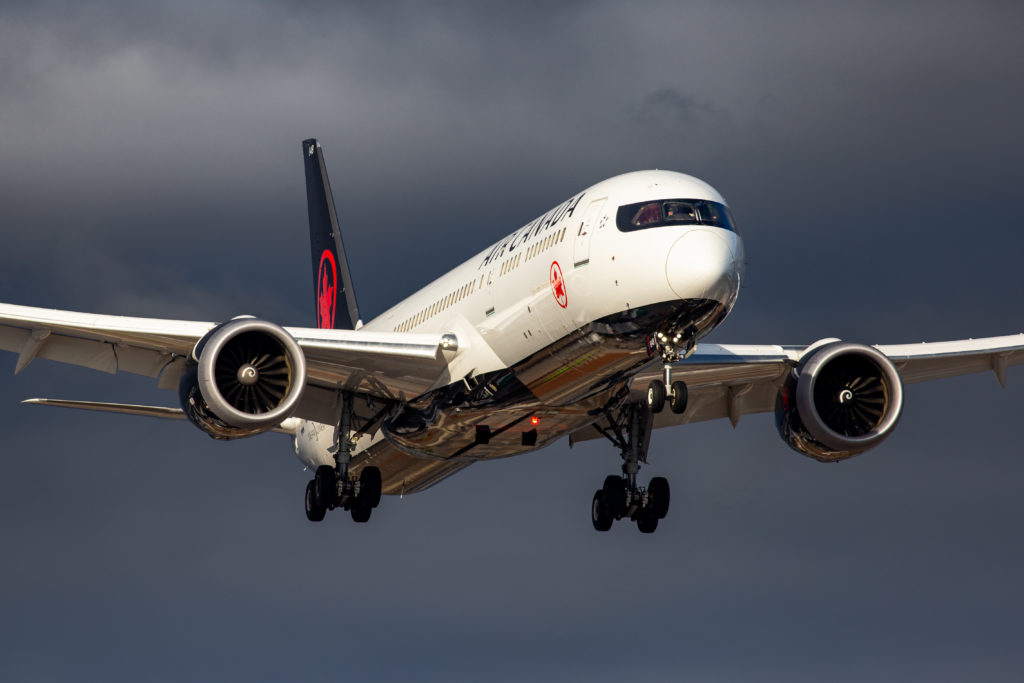Estimated reading time 5 minutes, 3 seconds.
The Green Aviation Research and Development Network (GARDN), SkyNRG, Waterfall Group and Vancouver Airport Authority announced the launch of BioPortYVR, an industry-led project to increase the supply of sustainable aviation fuel (SAF). BioPortYVR supports provincial and federal government climate action commitments and is an important step towards a made-in-B.C. solution for the introduction of SAF across Canada.

Sustainable aviation fuel is not currently widely available in Canada. Meanwhile, demand is growing as the airline industry looks to reduce its carbon footprint. The International Air Transport Association lists sustainable aviation fuel as one of the key elements to help the aviation industry achieve its ambitious 2050 emissions reduction goals.
The first step of the project includes a comprehensive feasibility study designed to assess the implementation of an integrated SAF supply chain in B.C. The study, set to be completed in March 2020, was commissioned by GARDN and brings together leading experts in SAF initiative development and airport sustainability.
BioPortYVR will consider and evaluate the viability of implementing regional supply chains to distribute SAF to airlines at YVR and surrounding airports through demand centres known as BioPorts. In the coming months, the project partners will engage with industry, government and other stakeholders to develop a series of actionable recommendations for the introduction of SAF at YVR.
Sustainable aviation fuel is produced from a wide range of sustainable sources, including organic waste streams, agri-residues and sustainable plant oils. Certified SAF can be blended with conventional jet fuel and does not require changes to aircraft or special infrastructure at airports, since it meets applicable regulatory requirements. SAF can result in CO2 emissions reductions by more than 85 per cent compared to conventional jet fuel.
“Since 2009, GARDN has funded more than 35 collaborative projects — including projects on sustainable aviation fuels — that have led to groundbreaking innovations all along the supply chain, reducing the environmental impact of Canada’s aerospace industry,” said Kateryna Derkach, director, Strategy and Sustainability, GARDN. “We are proud to commission the BioPortYVR project and work with industry-leading partners to assess the future of locally produced SAF in Canada and shape a more sustainable air transportation industry.”
“We are proud to be a part of BioPortYVR and to help advance the use of SAF in Canada together with such strong partners. Building new industries is all about partnering with the right people and organizations. For us, this is an important milestone in growing the market for sustainable aviation fuel and in ensuring a sustainable future for commercial aviation,” added Misha Valk, head of Future Fuels, SkyNRG.
“Our firm is focused on creating the conditions for economically viable production and use of renewable fuels in Canada. This partnership and BioPortYVR is an important evolution of our work in the aviation sector,” commented Fred Ghatala, partner, Waterfall Group.
“We pride ourselves on being a leader in sustainability and are thrilled to be at the forefront of exploring SAF in Canada alongside GARDN, SkyNRG and Waterfall Group. As Canada’s second busiest airport, we look forward to contributing to real and visible actions that have the potential to significantly reduce carbon emissions from air travel,” said Marion Town, director, Environment, Vancouver Airport Authority.
“Air Canada has long advocated for and participated in the advancement of innovative solutions to improve aviation’s environmental performance. We are fully supportive of the BioPortYVR project as it will help develop a viable framework for the implementation of a regional and collaborative approach to the production of sustainable alternative fuels in Canada, which will benefit the entire industry,” remarked Teresa Ehman, senior director, Environment Affairs, Air Canada.
“As the ultimate end-user in the sustainable aviation fuel value chain, WestJet congratulates Vancouver Airport Authority and its partners in helping airlines identify a cost-effective and long-term Canadian-made SAF supply option. Reducing our carbon footprint is a priority for WestJet and through the launch of the BioPort concept, we look forward to working together to make air travel more sustainable while continuing to connect families and friends, businesses and communities around the world,” added Geoffrey Tauvette, director, Environment and Fuel, WestJet.








